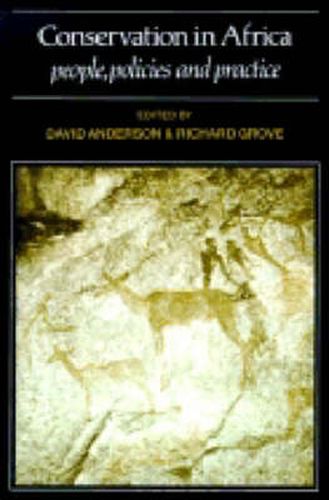Readings Newsletter
Become a Readings Member to make your shopping experience even easier.
Sign in or sign up for free!
You’re not far away from qualifying for FREE standard shipping within Australia
You’ve qualified for FREE standard shipping within Australia
The cart is loading…






A new, interdisciplinary look at the practices and policies of conservation in Africa is presented in this volume. For the first time social scientists, anthropologists, and historians have been brought together with biologists, in order to illuminate previously neglected yet critically important social aspects of conservation thinking. The book is introduced by an overview of African conservation in the past, present, and future. There are sixteen papers on a wide range of topics from wildlife management to soil conservation, and from the Cape in the nineteenth century to Ethiopia in the 1980s. These collectively show that conservation must form an integral part of future policies for human development. To date, conservation has been largely the domain of the biologist, but the current ecological crisis in Africa and the failure of orthodox conservation policies demand a radical new appraisal of conventional practices. This, therefore, is essential reading for all those concerned about people and conservation in Africa.
$9.00 standard shipping within Australia
FREE standard shipping within Australia for orders over $100.00
Express & International shipping calculated at checkout
A new, interdisciplinary look at the practices and policies of conservation in Africa is presented in this volume. For the first time social scientists, anthropologists, and historians have been brought together with biologists, in order to illuminate previously neglected yet critically important social aspects of conservation thinking. The book is introduced by an overview of African conservation in the past, present, and future. There are sixteen papers on a wide range of topics from wildlife management to soil conservation, and from the Cape in the nineteenth century to Ethiopia in the 1980s. These collectively show that conservation must form an integral part of future policies for human development. To date, conservation has been largely the domain of the biologist, but the current ecological crisis in Africa and the failure of orthodox conservation policies demand a radical new appraisal of conventional practices. This, therefore, is essential reading for all those concerned about people and conservation in Africa.